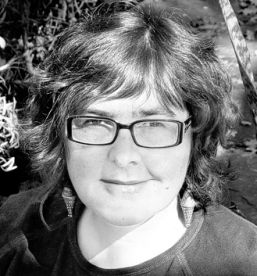Recently she spoke with the Internet Hall of Fame about human rights and the intersection of the feminist and Internet-freedom movements. Here’s part of that conversation.

Q. What do you believe are the biggest Internet-related human rights challenges today?
A. One of the biggest tensions is the one between the people’s need for a public space to talk about politics, gender issues, or anything else they might want to talk about, and the governments that are trying to control that space. But it’s not just governments that are trying to control it: it’s also private businesses. For example, Internet.org, an initiative of Facebook, would give people access to the Internet only through Facebook, a private company. That’s an encroachment on the possibilities of the Internet, which is unacceptable. So, freedom of expression can be limited by governments, but also by business.
Q. Do you feel we’re all going to have to live with more online surveillance in order to achieve security?
A. I agree with ISOC’s recent statement endorsing a collaborative approach to security. Strong privacy actually makes us more secure, and the Internet must be secure for everyone. We are going to have to change data-retention rules and protocols worldwide. There’s no useful “good nation/bad nation” dichotomy to be made: each country is different. Some countries, for example, have an obsession about blasphemy. But even in nations that are free in many ways, we have problems, such as here in South Africa. Politicians seize people’s computers for no good reason. So, the challenge is quite widespread. It’s not ever-wider police nets that we need; it’s targeted surveillance and smarter protocols. The more arbitrary police agencies are, the less effective their work is. There’s a need for governments in general to recognize that you can’t eliminate bad behavior or harmful content by trying to control the entire Internet and all its billions of users.
Q. At the APC, you have fought for equality for women, minorities and the disempowered for many years. Has the Internet helped at all to empower these groups?
A. The Internet is a very empowering tool: people who live very restricted and marginalized lives can go online and learn and speak their minds. But you really can’t separate the online world from the offline world. Patriarchy and violence against women continue, and we live in an era when gender equality can’t be taken for granted. In many nations, there are girls who just don’t want to study STEM [science, technology, engineering and math] subjects. This isn’t the fault of the Internet; it’s the socialization that they are subjected to, and it happens in the richest countries as well as in developing regions.
Q. What are the biggest obstacles developing nations face today in getting people connected to the Internet?
A. We see political, financial and educational obstacles, which are just as great as the technological ones. To get the most from the Internet, you need literacy, affordability, broadband and fiber-optic infrastructure, and much more. Then when you have all that, universities need enough workstations for their students. And governments have to develop enabling policies. You have to eliminate the monopolies some businesses and some governments have on communication infrastructure. Even a simple thing like access to libraries – you don’t have that in all countries. In other countries, they may have good mobile service, but universities are hampered by the lack of broadband. And people have to demand online access. To put it in business terms, you need demand-side as well as supply-side development.
Q. What are the most heartening developments today in the Internet world?
A. The users are amazing. Once they have Internet access, it’s fantastic what they do with it. The building of online communities is really inspiring. The bottom line is, people with great-quality access will develop great content. Just look at how the Spanish-language content on the Internet has taken off.
Written by Internet Hall of Fame Editorial Staff
